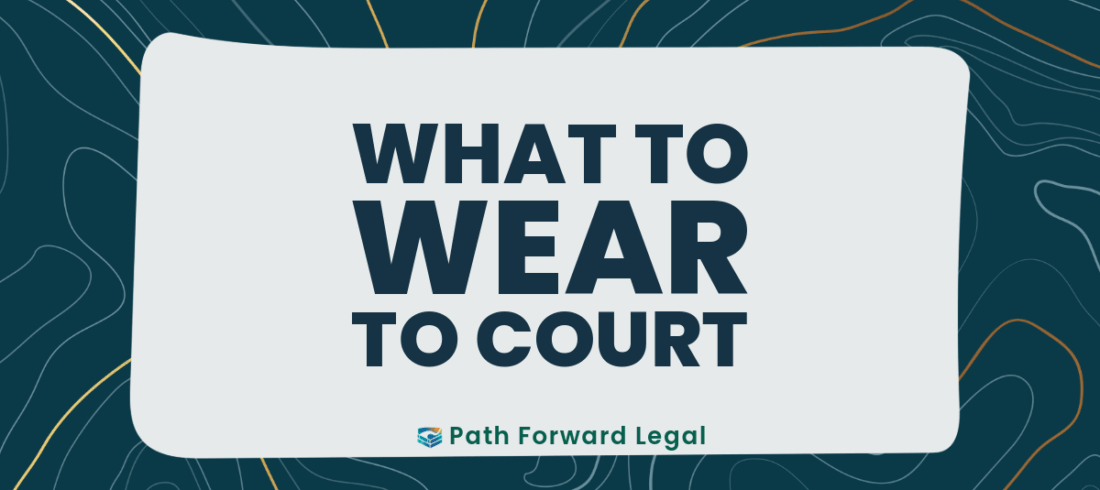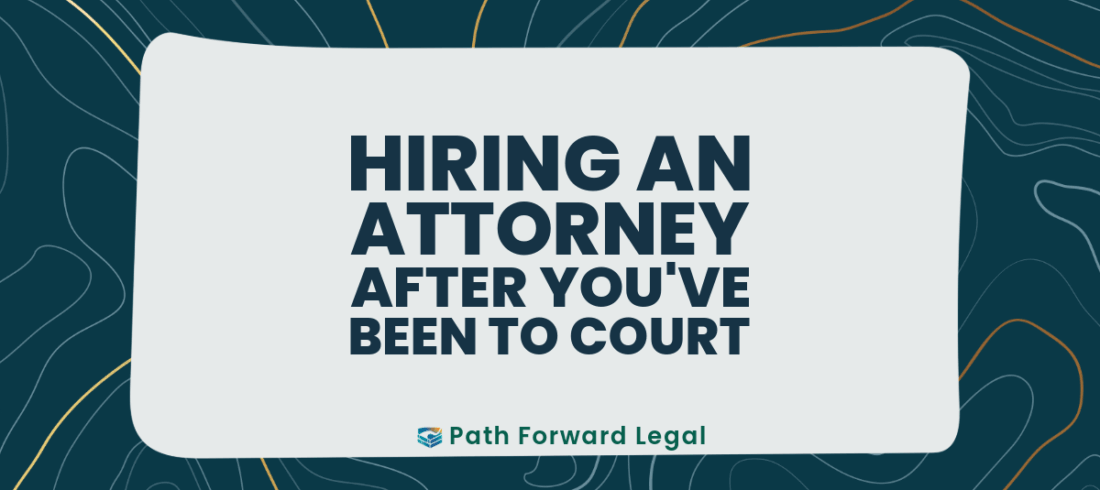When someone has been charged with a crime, they have a right to be informed of the nature of the charges against them. In serious cases, They also have a right to an attorney and at every critical stage of their court case. But how do you know what you’ve been charged with and if you have a right to and attorney? The judge is supposed to tell you at your first court date.
What is your first court date called?
Different states and different courtrooms use different names for that first court date. In Colorado, if you’ve been ticketed by a police officer or charged with a crime and given a summons, your first court date is usually called a First Appearance. Some counties, like Adams, have a special courtroom dedicated to first appearances. Others, like Douglas, may have you wait in a hallway to talk to a clerk at a window before you see the inside of a courtroom.
One of the things you learn if you practice law in many different places is that every court has its own name and way of doing things, and some of the time people in that court think theirs is the only way. It can be really hard for a defendant facing court for the first time to get good advice for what to do and what to expect, other than “it depends.” In this article, I’m calling the first time in court a “first appearance.” But in some places it may be called an advisement. In others, an arraignment. If you’ve been arrested, your first appearance may be your second time in court because your first was a bond hearing.
Why do I hear defendants plead Not Guilty their first time in court?
The crime you are charged with also makes a difference when knowing what has to happen at your first court date. Traffic tickets are different than misdemeanors are different than felonies. If you’re facing a charge of domestic violence, sexual assault, or other crimes against persons, you probably will have a protective order placed on you.
You may have seen on the news someone being arrested for a crime, confessing to it, and the news commentators and comment section going wild when at their first court date, they plead not guilty. That probably didn’t happen in Colorado. But to get it out of the way – in many states, you have an arraignment within 48 hours of being arrested, and you formally plead not guilty at that time. Deadlines are set based on that not guilty plea, including speedy trial time limits and deadlines for filing motions. Almost no one pleads guilty at that first court date, especially to really serious crimes.
In Colorado, the formal declaration of guilty or not guilty usually comes later. After you get discovery, have time to investigate the case, and have time to discuss plea options with the prosecution.
What normally happens at a first appearance in court?
So what happens at your first court date in Colorado? If you don’t have an attorney, the judge will ask you if you want to hire an attorney or apply for the Public Defender. If you’re in custody -in jail- in Colorado it is assumed that you qualify for the public defender, and they will automatically enroll in your case if you ask. If you’re out of custody, then you can ask for time and instructions on how to apply for the PD before your next court date. You can also tell the judge that you want time to hire a lawyer.
The judge will also tell you what you’ve been charged with and the potential penalties for those charges. If you have a lawyer, your attorney will probably let the judge know that we’ll explain it to you later, and the judge doesn’t have to. When I was practicing in Louisiana, every criminal defense attorney knew to tell the judge that the defendant waived formal advisement and formal reading. Those were magic words the judge would wait for so they wouldn’t have to spend the next five minutes reading the law book at the defendant. In Colorado, it depends on the judge and the county. That’s a big difference between having a first appearance or a formal arraignment at the first court date.
Usually what will happen next is the judge will ask you or your attorney how much time you need before your next court date. 30 days is standard, it’s not a rule. If I’m representing someone and I know we need much more time to review discovery or conduct an investigation, I may ask for 45 or 60 days. But in some courts, asking for more than 30 days means the judge will set the case for a different kind of hearing. Your actual arraignment.
How to prepare for your first court appearance.
Be sure to bring your calendar and know of any potential conflicts before your court date. You want to be able to very quickly tell the judge and your lawyer if you’re having surgery, have an exam, or want to go out of town, when the judge wants to set your next date.
How long will your first appearance take?
It depends!
It usually takes a minute or two once your case is called. Most of the time, my clients turn to me after and say, that’s it? That’s it. Not much happens.
But so much can happen behind the scenes. You’ve probably done a lot of work choosing a lawyer, or looking for one. Your attorney may have requested discovery already and maybe talked with the prosecutor. Though sometimes you won’t now which prosecutor is assigned until your first court date or even after.
The day of your court, you may have to wait for your case to be called. Sometimes this takes hours. You could have court at 8:30 and not be out of there until 11. Every courtroom is different.
The biggest takeaway is probably that first appearances are really important but almost nothing happens during them.
You have to show up, and you should be on time with your calendar ready. If you’re going to hire a lawyer, try to do that before your court date. If you can, at least one or two weeks before your court date. But the day before is better than an hour before. We can give you advice about what to do and some of what to expect. We may even be able to get the court date changed or continued.




